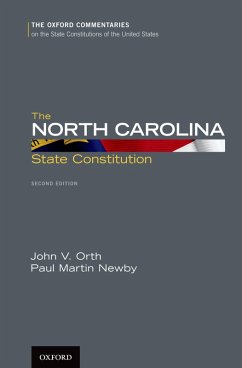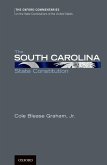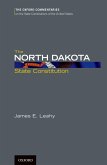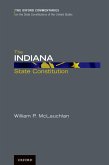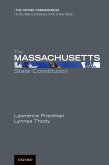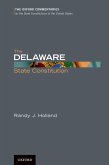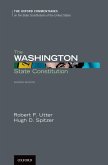North Carolina's state constitution charts the evolution over two centuries of a modern representative democracy. In
The North Carolina State Constitution, John V. Orth and Paul M. Newby provide an outstanding constitutional and historical account of the state's governing charter. In addition to an overview of North Carolina's constitutional history, it provides an in-depth, section-by-section analysis of the entire constitution, detailing the many significant changes that have been made since its initial drafting. This treatment, along with a table of cases, index, and bibliography provides an unsurpassed reference guide for students, scholars, and practitioners of North Carolina's constitution. Co-authored by Paul M. Newby, a sitting justice of the North Carolina Supreme Court, the second edition includes significant constitutional amendments adopted since the date of the first edition. Almost every article was affected by the changes. Some were minor-such as the lengthening the term of magistrates-and some were more significant, such as spelling out the rights of victims of crimes. One was obviously major: granting the governor the power to veto legislation-making North Carolina's governor the last American governor to be given that power. In addition, the North Carolina Supreme Court has continued the seemingly never-ending process of constitutional interpretation. Some judicial decisions answered fairly routine questions about the powers of office, such as the governor's clemency power. Others were politically contentious, such as deciding the constitutional constraints on legislative redistricting. And one continues to have momentous consequences for public education, recognizing the state's constitutional duty to provide every school child in North Carolina with a "sound, basic education."
The Oxford Commentaries on the State Constitutions of the United States is an important series that reflects a renewed international interest in constitutional history and provides expert insight into each of the 50 state constitutions. Each volume in this innovative series contains a historical overview of the state's constitutional development, a section-by-section analysis of its current constitution, and a comprehensive guide to further research. Under the expert editorship of Professor G. Alan Tarr, Director of the Center on State Constitutional Studies at Rutgers University, this series provides essential reference tools for understanding state constitutional law. Books in the series can be purchased individually or as part of a complete set, giving readers unmatched access to these important political documents.
Dieser Download kann aus rechtlichen Gründen nur mit Rechnungsadresse in A, B, BG, CY, CZ, D, DK, EW, E, FIN, F, GR, HR, H, IRL, I, LT, L, LR, M, NL, PL, P, R, S, SLO, SK ausgeliefert werden.

